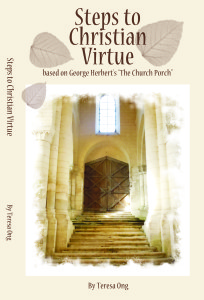Verse One
Thou, whose sweet youth and early hopes enhance
Thy rate and price, and mark thee for a treasure;
Hearken unto a Verser, who may chance
Rhyme thee to good, and make a bait of pleasure.
A verse may find him, who a sermon flies,
And turn delight into a sacrifice.
English poet George Herbert seems very far removed from evangelicalism in the 21st century. He was born in 1594 and died young, age 39, in 1633. He was well-born and well-educated. His destiny seemed to be a life of relative ease and political influence. But here is where the distance between Herbert and us closes– God grabbed hold of him and would not let go, as He does with all His chosen saints of all eras.
He was a man who knew experientially of a “sweet youth and early hopes.” His aristocratic family heritage and education at Trinity College, Cambridge seemed to suit him for “doing good by winning a place at the source of [political] power,” as men like John Winthrop and William Wilberforce were to do in their own times. But Herbert was grabbed and given what Scottish author George MacDonald would have called “a rough shaking.” He struggled with loss of friends and health and the dashing of his hopes for “usefulness.” [p. xvii]
Toward the end of his short life he was ordained as an Anglican minister and served in a small, struggling parish. It was there he wrote most of his rich and deservedly well-loved poetry– much of which was not published until after his death.
Biographer Isaak Walton, writing 40 years after Herbert’s death, recorded that Herbert on his deathbed sent “The Temple” to his friend Nicholas Ferrar. He said it contained “a picture of the many spiritual conflicts which have passed betwixt God and my soul, before I could subject mine to the will of Jesus my Master: in whose service I have now found perfect freedom.” [p. xvi] His personal desire for his poetic work, of which “The Church Porch” is a part, was in the Augustinian ideal of teaching and delighting. “If he [Ferrar] can think it may turn to the advantage of any dejected poor Soul, let it be made publick: if not, let him burn it: for I and it are less than the least of God’s mercies.” [p. xvi]
“The Church Porch” is symbolically the way in, the beginning of being the fully consecrated temple of God’s Holy Spirit. In order to begin to be what God wants us to be once we have believed in the redemptive work of our Savior Jesus Christ, there are many steps to take in putting off the old man and putting on the new (Eph. 4). The seventy-seven verses of “The Church Porch” challenge us to turn our delight in Herbert’s crisp and often witty verses into a “living sacrifice which is our spiritual service of worship.” (Rom. 12:1) What is that sacrifice? The presentation of our bodies– faulty and frail as they may be– to do always and only the will of God.
When Herbert was dying, a friend sought to comfort him by reminding him of all the good works he had done in his short lifetime. Herbert replied, “It is a good work, if it be sprinkled with the blood of Christ.”
It is with that understanding that we can be God’s treasure, “His workmanship created in Christ Jesus unto good works which God has foreordained that we should walk in them.” (Eph. 2:10) Let us walk up the steps of the church porch together.

Watch for this book at Chambers College Press coming soon this summer.